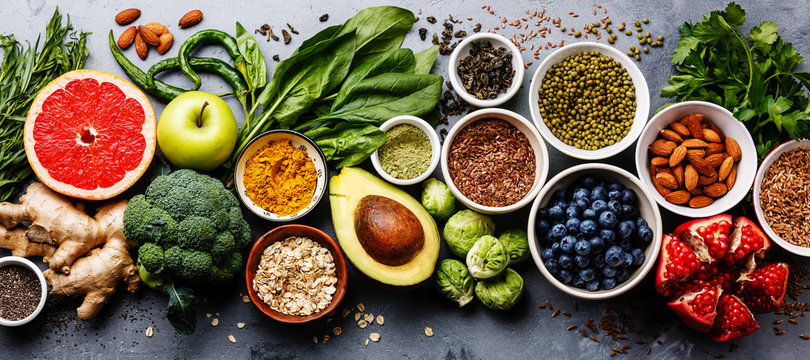Introduction to Healthy Eating
Welcome to a journey towards vibrant health and wellness through the power of healthy eating! In a world filled with quick fixes and fad diets, it’s time to embrace the simplicity and effectiveness of choosing nutritious foods for a balanced diet. Are you ready to discover how small changes in your daily food choices can lead to big improvements in your overall well-being? Let’s dive into the wonderful world of healthy eating together!
Are you ready to embark on a journey towards healthier eating habits? Whether you’re looking to boost your energy levels, improve your overall well-being, or simply feel better in your own skin, choosing healthy foods for a balanced diet is the first step towards reaching your goals. Join us as we explore the wonderful world of nutritious and delicious foods that will nourish both your body and soul. Let’s dive into the art of healthy eating together!
Understanding the Basics of a Balanced Diet
Understanding the basics of a balanced diet is essential for overall health and well-being. It’s not about following strict rules or depriving yourself; it’s about nourishing your body with the right nutrients.
A balanced diet consists of a variety of foods from different food groups, including fruits, vegetables, whole grains, lean proteins, and healthy fats. Each food group provides unique benefits that contribute to your overall health.
By incorporating a wide range of foods into your daily meals, you ensure that you’re getting all the necessary vitamins and minerals your body needs to function optimally. Remember, moderation is key – enjoying treats in moderation is perfectly fine!
Listening to your body’s hunger cues and eating when you’re hungry while stopping when you’re full is also crucial in maintaining a balanced diet. By being mindful of what and how much you eat, you can establish healthier eating habits for the long term.
The Importance of Macronutrients in a Healthy Diet
Macronutrients are the building blocks of a healthy diet. They provide the energy our bodies need to function optimally.
Proteins, carbohydrates, and fats make up the three main macronutrients that should be included in every meal. Proteins help with muscle repair and growth, carbohydrates are our primary source of energy, and fats play a crucial role in hormone production and nutrient absorption.
Balancing these macronutrients is key to maintaining stable blood sugar levels throughout the day. It’s not just about counting calories but ensuring you’re getting a good mix of proteins, carbs, and fats at each meal.
Remember, variety is essential when it comes to macronutrients – aim for lean proteins like poultry or tofu, complex carbohydrates such as whole grains and plenty of healthy fats from sources like avocados or nuts.
Incorporating Whole Foods into Your Diet
Are you looking to upgrade your eating habits? Incorporating whole foods into your diet is a game-changer. Whole foods are natural, unprocessed items that offer a myriad of health benefits.
Fruits, vegetables, whole grains, nuts, seeds – these are all examples of whole foods that pack a nutritional punch. By including them in your meals and snacks, you’re fueling your body with essential vitamins, minerals, and fiber.
Whole foods are not only nutrient-dense but also help to maintain a healthy weight and reduce the risk of chronic diseases like heart disease and diabetes. The best part? They taste delicious too!
When grocery shopping or meal prepping, opt for fresh produce over packaged goods whenever possible. Get creative in the kitchen by trying out new recipes that incorporate different types of whole foods.
Remember: variety is key when it comes to incorporating whole foods into your diet. Experiment with different colors and textures to ensure you’re getting a wide range of nutrients every day.
Mindful Eating: Listening to Your Body’s Needs
In the hustle and bustle of our daily lives, it’s easy to fall into mindless eating habits. Mindful eating is about tuning in to your body’s needs and being present during meal times.
Take a moment to appreciate the flavors, textures, and aromas of your food. Engage all your senses as you eat – chew slowly and savor each bite.
Pay attention to how different foods make you feel. Notice when you’re truly hungry versus eating out of boredom or emotions.
Allow yourself to enjoy treats in moderation without guilt. Balance is key in mindful eating – it’s not about restriction but about making conscious choices that nourish both your body and soul.
Listen to your body’s signals of hunger and fullness. Stop when you’re satisfied, not stuffed.
By practicing mindful eating, you cultivate a deeper connection with your body and develop a healthier relationship with food.
Staying Consistent with Healthy Eating Habits
Consistency is key when it comes to maintaining healthy eating habits. It’s not just about quick fixes or short-term diets, but rather a long-term commitment to nourishing your body with the right foods.
One way to stay consistent is by planning ahead and preparing meals in advance. This can help you avoid impulsive food choices and ensure that you have nutritious options readily available.
Another tip is to find healthy alternatives for your favorite indulgences. Craving something sweet? Opt for fresh fruit instead of reaching for sugary treats.
Listen to your body’s cues and eat when you’re hungry, stopping when you’re satisfied. Mindful eating can help prevent overeating and promote better digestion.
Remember, it’s okay to indulge occasionally – moderation is key. The goal is progress, not perfection. Trust the process and give yourself grace on this journey towards a healthier lifestyle.
The Role of Exercise in a Balanced Diet
Remember, achieving a balanced diet is not just about the foods you eat but also about staying active. Exercise plays a crucial role in supporting your overall health and well-being. Whether it’s going for a run, practicing yoga, or hitting the gym, finding activities that you enjoy can help you stay motivated and consistent with your healthy eating habits.
By combining nutritious food choices with regular physical activity, you can create a sustainable lifestyle that nourishes both your body and mind. Remember to listen to your body’s needs, incorporate whole foods into your meals, and be mindful of what you consume. Stay committed to making small changes each day towards a healthier lifestyle – your future self will thank you for it!





